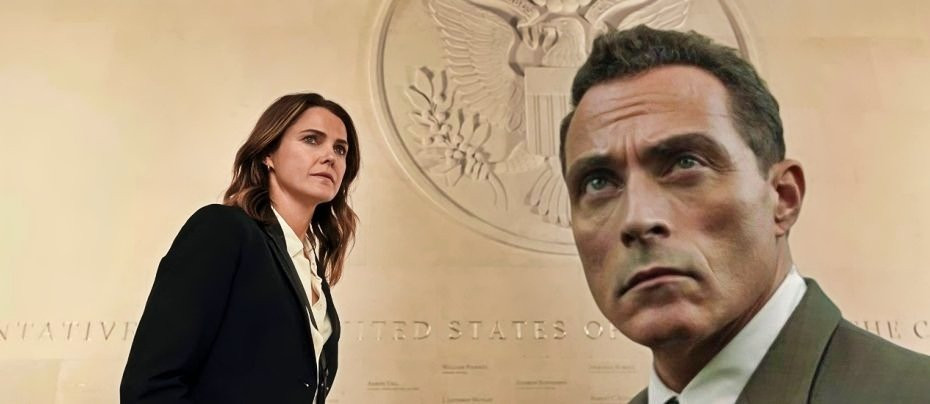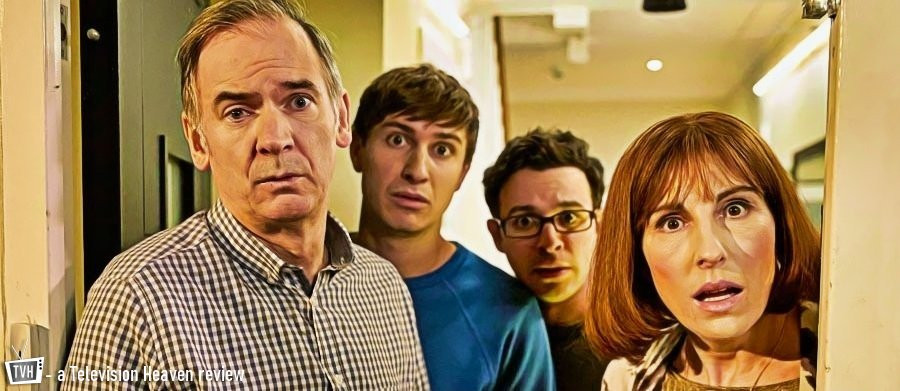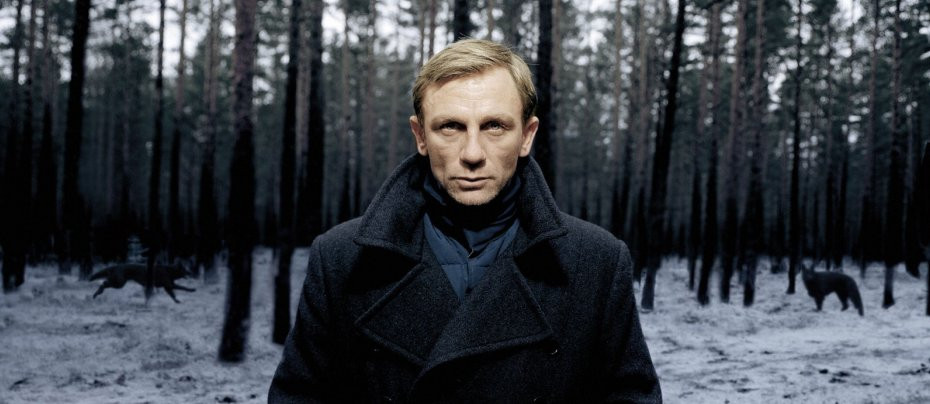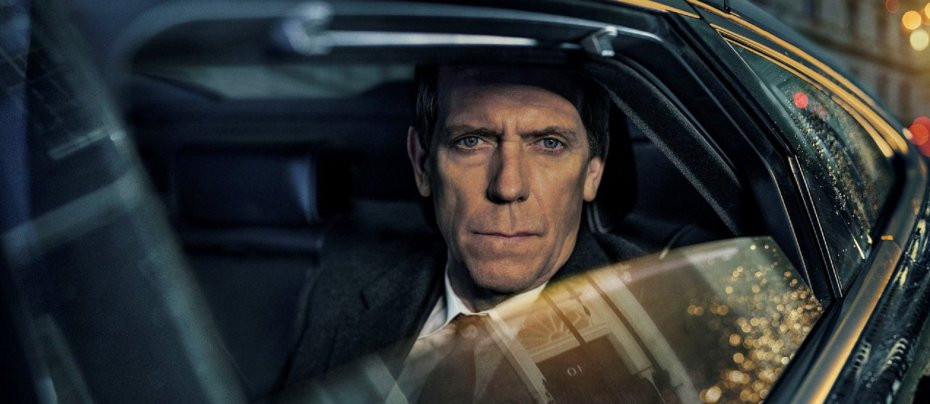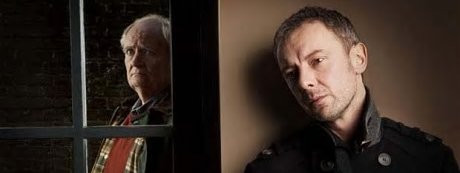
Borgen
2011 - DenmarkThe BBC bought it, aired it early in 2012, and immediately had another "cult" hit on their hands
Borgen review by John Winterson Richards
Much of the success of Forbrydelsen, known in English as The Killing, the show that started the British love affair with Scandinavian television drama when it was first shown on the BBC in 2011, was due to it adding a political dimension. Indeed, the slightly exotic world of Danish politics was often even more compelling than the actual murder mystery that gave the first season its spine. The thought occurred to many that it might work to have a drama just about the politics without the distraction of the murder mystery.
It just so happened that DR1, the Danish network that had made The Killing, had since made what everyone wanted, Borgen, a pure political drama with many of the same actors who had appeared in The Killing. The BBC bought it, aired it early in 2012, and immediately had another "cult" hit on their hands, making the fashion for Scandi-drama a definite trend rather than just another one trick pony. Borgen deserves its success. This is television for grown-ups and how wonderfully refreshing it is. There is little action as such. It is all about character, conveyed by dialogue and decisions. It is the very antithesis of the loud, fast "superhero" show.
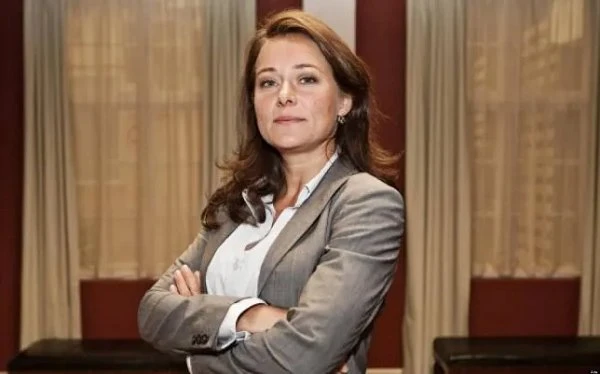
We are introduced to one of the great television protagonists, Birgitte Nyborg, an attractive young wife and mother who just happens to be the leader of a small centrist party in the Folketinget, the Danish Parliament. At a time when Denmark, like most Western countries, had still never had a female Head of Government, Nyborg was a trailblazer. It is interesting to note that a number of countries, including Denmark, Sweden, Finland, and New Zealand have since followed in the show's footsteps by appointing young women as Prime Minister. Perhaps it took a television drama to show them the way?
British viewers, having been accustomed to the notion of a female Head of Government over thirty years before these supposedly more trendy nations, probably did not appreciate how radical the idea still was in many parts of the world as late as 2012.
We follow Birgitte over four seasons, the fourth produced by Netflix after a long hiatus, representing about twelve years. At a relatively early stage she becomes a compromise Prime Minister (a little confusingly, the Danish title translates as "Minister of State," which is the title of a second rank Minister in the United Kingdom). This would probably be the culmination of the show, or at least a season, in a conventionally structured show, but Borgen is more realistic: the writers understand that there are no "happy ever afters" in politics. One of the many truths about politics that Birgitte discovers is that it is better to be a strong Minister of Foreign Affairs than a weak Prime Minister.
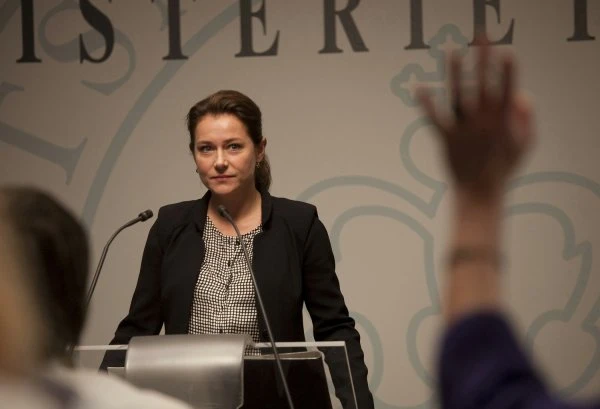
Birgitte sometimes loses. At one point she leaves politics and basically has to set up her own party to get back in. There is an unspoken subtext that, for all her outward likeability, Birgitte is a very ambitious and rather egotistical individual. A central theme is the conflict between her genuine, sometimes naive idealism and a ruthless streak that comes out under pressure. Her conscience usually prevails but good drama demands there is considerable doubt along the way. She could very easily go to the Dark Side.
For all her talk of principles and values, she is not in her core a particularly moral person. Would she be so likeable if she was not so good looking?
All this takes a toll on her family, in spite of her initially very supportive husband. The question is subtly left unspoken whether this would be so much of an issue for a male politician? The script also avoids the obvious cliché of her ultimately choosing family over career. In the end Birgitte is first and foremost a politician. Sometimes she feels guilty about it but that is who she is. Again, it is cleverly left unasked if her male equivalent would even bother feeling guilty?
That she remains sympathetic is due entirely to a carefully judged performance by Sidse Babett Knudsen as Birgitte. Blessed with classical beauty, Knudsen certainly looks the part of a natural leader - an important factor in leadership - but she also conveys the vulnerability and uncertainty beneath the image.

She is backed by a superb supporting cast which demonstrates Denmark's strength in depth in this regard. Familiar faces from The Killing include Mikael Birkkjaer as her apparently perfect husband, the almost compulsory Soren Malling as a senior journalist, Lars Mikkelson as an economist with an awkward past, and Bjarne Henriksen as one of several successive leaders of the Labour Party, the Borgen analogue of the Danish Social Democrats.
Another leader of the Labour Party, later a tabloid editor and then a political consultant, Michael Laugesen (Peter Mygind), serves as Birgitte's main antagonist and the devil that sits on her shoulder. He is a Mephistopheles figure who bears a strange resemblance to British Labour "spin doctor" Alastair Campbell and whose actions bear an uncanny resemblance to those of British tabloid editor Piers Morgan. This may be no coincidence: the Danes take a great interest in British politics and media - and Helle Thorning-Schmidt, who is said to have been a model for Birgitte and who later really did become Denmark's first female Prime Minister, married the son of a British Labour leader. Birgitte later takes up with a British businessman.
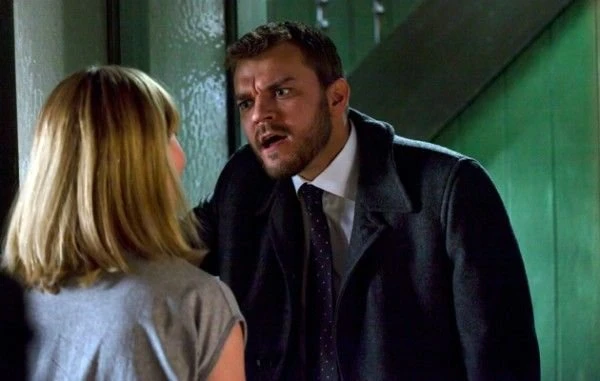
The two big "breakout" stars of Borgen, along with Knudsen, are Pilou Asbaek as Birgitte's own ethically challenged "spin doctor" and Birgitte Hjort Sorensen as his old flame, an ambitious young journalist. Both appeared subsequently in Game of Thrones and Asbaek has been particularly busy. Lars Knutzon also makes a strong impression as Birgitte's political mentor and substitute father figure. It is worthy of note that when called upon to do so, as happens frequently, most of the cast, like most Danish people it seems, speak English better than most English people. Knudsen even seems to enjoy playing with different English accents.

The other big factor in the success of Borgen in the UK was the strange mixture of the familiar and the alien in its portrait of the Danish political system. Partly by cultural tradition and partly due to an electoral system based on proportional representation, Danish politics operates on the basis of a broad consensus far more than two-party, winner-take-all British and American politics. Elections are just the preliminary stage: what really matters is the deal making between parties that follows, which provides much of the drama in Borgen. This sounds cosy but it should be noted that those who do not go along with the consensus are excluded quite aggressively. Borgen shows this in the isolation of a party that challenges the liberal immigration policy of the consensus. This political culture delivers stability, but begs the question of what happens when the day comes when hard decisions and radical changes are required? Borgen poses that question a lot, even if it usually avoids direct answers.
Danish politics, as least as presented in Borgen, currently has no Great Causes or Great Divides, like the recent debates about Europe in the UK or the "culture wars" in the US. Much of the debate is about nuance and priority rather than a clash of principles. As a result, the Danes are shown as taking relatively minor things very seriously. There is little room for the cynicism or the humour that permeate British politics even at the highest levels. In Borgen Danish politicians actually seem to believe in rules to which their British equivalents pay lip service.
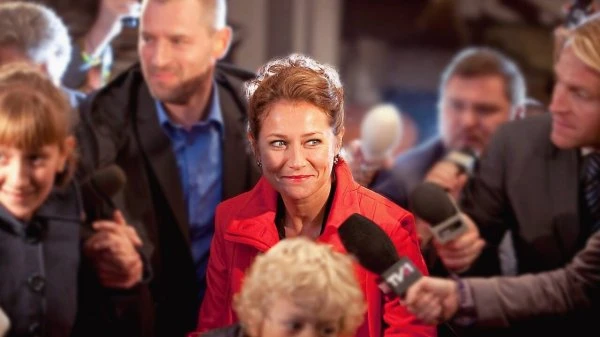
The emphasis on deal making gives the political parties more importance and the voters less. In spite of Denmark's social conventions of somewhat forced egalitarianism, the 'Jante Law,' there is no denying that Borgen presents us with the picture of a closed political class. The word Borgen means "Castle," and it is frequently used in Denmark to denote the Christianborg Palace, where the Folketinget, Prime Minister's Office, and Supreme Court are all located - and is therefore used to signify the political Establishment as a whole, in the same way a Briton might say "Westminster" or an American "Washington."
The word Borgen therefore has connotations of thick walls separating the rulers within from the ruled without. This is certainly how it comes across in Borgen the show. The politicians and journalists are generally seen as being in their own little world. To a certain extent this is inevitable on television due to budgetary constraints. A British Minister's life is usually split between Ministerial offices, Parliamentary debates, and constituency work or campaigning, but it is usually too expensive to show the last two, because they require more money for extras and locations, and, anyway, the literal corridors of power are where the real human drama happens.

However, one does get the impression from Borgen that things really are far more centralised in Denmark. More importantly in terms of democratic accountability, the politicians, the civil servants, and the media are shown as being very incestuous - sometimes literally in bed together. Characters are shown as moving very easily between professional politics and the media supposedly holding them to account. The same is true of most Western democracies these days, and who is to say if Denmark is better or worse than most, but what Borgen suggests is not healthy. One hopes the writers are making this point deliberately.
It seems that the Danish television industry is dominated by the same side of the political spectrum as its British and American counterparts, and this is reflected in Borgen. Although she is introduced as a centrist, when Birgitte is agonising over whether to do the right thing it usually turns out to be the left thing. This is to be expected, and it is only natural for a show to take its protagonist's point of view, but other perspectives might have been interesting.
Like a lot of shows recently, it ended in disappointment, the final episode being its lowest rated on IMDb. None of this detracts from the fact that Borgen is an outstanding piece of television with a level of sophistication rarely seen in Anglophone drama now. It is solid proof that good characters and intelligent writing can make conflict far more exciting than any special effects.
Seen this show? How do you rate it?
Seen this show? How do you rate it?
Published on June 16th, 2022. Written by John Winterson Richards for Television Heaven.


